Speaker
Description
Monolithic silicon pixel detectors are attractive candidates for future large-area trackers in particle physics due to their advantages, for instance to reduce the production effort and material budget. State of the art monolithic silicon pixel detectors can reach high spatial precision. Integrating picosecond time resolution in such devices would significantly improve their performance and further widen their range of applications.
The MONOLITH ERC advanced project aims at achieving this by using SiGe BiCMOS electronics and a novel sensor concept, the Picosecond Avalanche Detector (PicoAD). Standard SiGe BiCMOS processes give access to ultra fast, high gain, low noise, low power frontend, implemented in a large collection electrode monolithic design. Using high-resistivity epitaxial layer material in combination with a continuous deep and thin gain layer, the novel PicoAD sensor concept permits to achieve a picosecond precise detector response over the full pixel cell. Placing the gain layer away from the pixel junctions additionally allows for a small pixel pitch and high spatial precision.
Several prototypes of this technology have been produced and investigated in simulations, laboratory and test-beam measurements. This presentation gives an overview of the novel sensor concept and the designed front end, and discusses the first preliminary results of the project.




